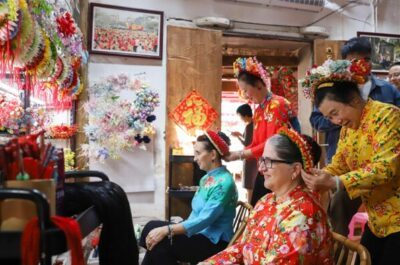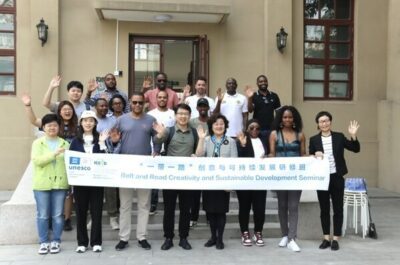…
Social media in Travel, Tourism and Hospitality: Theory, practice and cases
Edited by Marianna Sigala, University of the Aegean, Greece, Evangelos Christou, Alexander TEI of Thessaloniki, Greece and Ulrike Gretzel, University of Wollongong, Australia
 The social media, or else the Web 2.0 as it is usually called, are fundamentally changing the way travellers and tourists search, find, read and trust, as well as collaboratively produce information about tourism suppliers and tourism destinations. Moreover, applications of Web 2.0 such as, collaborative trip planning tools, social networks, and multi-player online social games, enable travellers to participate in all business operations and functions (e.g. marketing, new service development). Consequently, travelers become co-marketers, co-designers, co-producers and co-consumers of travel experiences. In using social media, the travelers co-produce and share a huge amount of information and knowledge namely user-generated-content (UGC) and/or social intelligence. The latter is useful and it has a great impact not only on travellers’ behaviour and decision-making processes, but it can also be exploited for informationalising and improving the effectiveness of business operations. For examples, firms use UGC for enhancing their customer complaints management processes, improving their environmental scanning abilities and informationalising new service development. In this vein, travel, tourism and hospitality companies are currently changing and redefining their business models and operational practices in order to exploit the business opportunities offered by social media as well as to address the expectations and the behaviour of the new travellers’ generation.
The social media, or else the Web 2.0 as it is usually called, are fundamentally changing the way travellers and tourists search, find, read and trust, as well as collaboratively produce information about tourism suppliers and tourism destinations. Moreover, applications of Web 2.0 such as, collaborative trip planning tools, social networks, and multi-player online social games, enable travellers to participate in all business operations and functions (e.g. marketing, new service development). Consequently, travelers become co-marketers, co-designers, co-producers and co-consumers of travel experiences. In using social media, the travelers co-produce and share a huge amount of information and knowledge namely user-generated-content (UGC) and/or social intelligence. The latter is useful and it has a great impact not only on travellers’ behaviour and decision-making processes, but it can also be exploited for informationalising and improving the effectiveness of business operations. For examples, firms use UGC for enhancing their customer complaints management processes, improving their environmental scanning abilities and informationalising new service development. In this vein, travel, tourism and hospitality companies are currently changing and redefining their business models and operational practices in order to exploit the business opportunities offered by social media as well as to address the expectations and the behaviour of the new travellers’ generation.
The wide application of social media by the travelers and the tourism industry alike has boomed research during the last decade. However, despite the increasing importance and impact of social media in the tourism industry, there is not any book yet addressing this topic from a holistic and overall perspective. To address this gap, this book consolidates under one cover leading-edge theory, research and case studies investigating the use and impacts of social media by both tourism demand and supply. The overall goal of this edited volume is to disseminate a coherent body of theory and practical based research that will provide insights for academics and professionals alike into the following issues: a) the profile, the behaviour and the changing roles of “travellers 2.0”, and b) the ways in which travel, tourism and hospitality firms and destination organisations are transforming their business models and operations for accommodating and exploiting UGC and social network interactions.
Book chapters are contributed by an international group of leading experts. Book chapters also represent case studies and research findings from various countries, and different types of tourism, hospitality and leisure companies, which in further enhance the contextualisation but also the generalisation of the book findings. Book chapters are organised into four sections addressing the abovementioned goals of the book.
Analytically the first section of the book aims to address the issue of the use and impact of social media in business operations and strategic models. To achieve that, the section includes four chapters providing practical examples and theoretical underpinnings on how firms can exploit social media for enhancing the following business operations and strategies: networking and collaboration; new service development; and travellers’ engagement in destination marketing. A concluding chapter of this section also discusses the factors inhibiting and/or facilitating tourism firms to exploit social media.
Given the enormous impact of social media on the marketing function, the second section of the book focuses on the use and impact of Web 2.0 tools on tourism marketing. The section features six chapters analysing the use of social media for marketing tourism destinations and individual tourism firms. Practical evidence and findings are provided from Web 2.0 enabled marketing practices of international Destination Management Organisations, meeting planners and hotels.
The third section of the book addresses the book’s aim to provide more insight into the impact of social media on travellers’ behaviour. Unless firms know how social media affect tourism behaviour, it is impossible for them to address their new needs, expectations and ways of decision-making. To that end, five chapters provide findings about the antecedents of use, the types of use and impacts of use of social media on travellers’ behaviour. In addition, book chapters address the question of whether all travellers are the same when it comes to social media perceptions and use. To that end, book chapters provide findings regarding the impact and the use of social media for different personalities, age, gender and nationalities of travellers.
Information is currently one of the most important and competitive asset of the firms and the social media provide a valuable and important tool for identifying, sharing and creating competitive intelligence. In this vein, the last section of the book focuses and analyses ways in which firms can exploit social media for enhancing their knowledge sharing and creation capabilities with external partners and firms, but also internally with their employees. To that end, three chapters provide theoretical underpinning and findings on the following issues: the use of social media for knowledge management practices; content analysis of blogs’ content; and the use of various tools for monitoring online reputation. The chapters demonstrate the use of various quantitative and qualitative methods that firms can use for exploiting UGC and informationalising their business operations.
Overall, the book provides a rich set of both theoretical background and industry evidence for exploiting and managing the impacts of social media both from a tourism demand and supply perspective. The book nicely integrates theoretical concepts with practical evidence gathered through a wide spectrum of international case studies and thorough literature reviews. The contributed book chapters also provide ideas for future research, which can hopefully further instill the readers to conduct more studies and further advance the knowledge in the field.
We hope you will enjoy reading this book.
The book editors:
Marianna Sigala
Evangelos Christou
Ully Gretze
Book Reviews:
‘Social Media in Travel, Tourism and Hospitality provides a comprehensive overview of how the rapidly developing Web 2.0 phenomenon is challenging existing customer service, marketing and promotional processes throughout our sector. Packed with examples and comprehensive analyses, the text help readers to rapidly gain an in-depth understanding of both current practices and potential future perspectives, helping them to assess the implications of such developments for their own businesses.’
Peter O’ Connor, ESSEC Business School, France
‘This is an excellent book. The focus of the book on Web 2.0 is important and timely as technology and society have converged to create tools which will have profound impact on travel. The variety of topics and depth to which issues related to Web 2.0 are discussed make it a volume that should be read by all tourism scholars. Further, it challenges both academics and industry professionals alike to consider how the quickly emerging online communities within Web 2.0 are shaping our future.’
Daniel R. Fesenmaier, Temple University, USA
‘This gripping collection of key topics in social media marketing is an extremely useful guide for tourism and hospitality researchers and practitioners alike. The latest insights into strategy development, Web 2.0 impact on user behaviour and knowledge management are illustrated with real-world case studies that will make you fit for your business.’
Christian Maurer, University of Applied Sciences Krems, Austria
TravelDailyNews Asia-Pacific editorial team has an experience of over 35 years in B2B travel journalism as well as in tourism & hospitality marketing and communications.




























![[PR] PR_Ascott and Vimut Hospital_2024](https://www.traveldailynews.asia/wp-content/uploads/2024/04/PR-PR_Ascott-and-Vimut-Hospital_2024-400x265.jpg)


















































